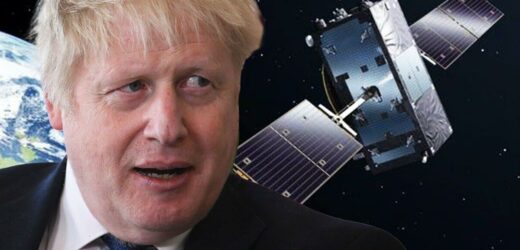The history of the UK space sector
We use your sign-up to provide content in ways you’ve consented to and to improve our understanding of you. This may include adverts from us and 3rd parties based on our understanding. You can unsubscribe at any time. More info
The UK was kicked out of the EU’s Global Navigation Satellite System (GNSS), known as Galileo, when it left the bloc. While this may have looked like a blow to the UK space sector, Rob Adlard, CEO of British aerospace company Gravitilab, said that the UK could see an “incredible boost” by funnelling money into an alternative. He told Express.co.uk: “We do not have to be part of the EU to do any of these things.
“But there is a cost, there is a price tag attached to do it ourselves.
“It is not like you can leave the EU, not spend the money and be in the same position. You are not. You are going to be worse off unless we spend the money to do it ourselves.
“And we can do all of that, if we want to do an alternative system and have UK launch companies launch British satellites, that would be the most incredible boost to the industry”.
And the UK does appear to be coming up with an alternative.
In July 2020, the UK invested £364million ($500million) to acquire the satellite company OneWeb from bankruptcy, in conjunction with the Indian company Bharti Global.


OneWeb was designed as a broadband constellation first and foremost – it will provide rural 4G, and one day 5G, Internet signals across the nation.
While carrying out a different function to Galileo, in the future, it has been tipped to do more, and many believe it will one day rival Galileo.
Mr Adlard said that acquiring the company was a “strategic move” that could make rivalling Galileo “possible”.
He told Express.co.uk: ”It is possible (that it can rival Galileo). It was a strategic move and OneWeb was so big that if it had gone to regions where we didn’t want the capability to go, that would have been bad.
“Rather than being able to do exactly that (GPNSS) with it, it was more strategic so we could get hold of it and not lose out too much.

“I think not being part of the EU’s global positioning programmes definitely fed into that.
“OneWeb is this massive constellation that can do all these different things, it has co-capability to do all kinds of stuff.
“If that goes and gets sold somewhere it would be really hard to climb up that mountain.
“Doing something ourselves separately as a nation, I think they (the Government) feel like having this connection with OneWeb makes that a possibility even if it is not a direct solution.
“So, they are keeping their finger in that pie to see what they can get out of it.”
DON’T MISS
Poland outsmarts Putin as Kremlin CUTS gas supplies into EU [REPORT]
Vallance skewers EV plans as going green ‘totally impossible’ for most [INSIGHT]
UK embarrassment laid bare: US hid details of NUKING British satellite [REVEAL]


But Business Secretary Kwasi Kwarteng seems convinced that OneWeb certainly can be an alternative.
He told the Science and Technology Committee back in February: “In terms of positioning, navigation and timing (PNT), which Galileo is all about, that is something that we could do ourselves.
“Some people say ‘we can’t do this, there is no way there we could do PNT outside Galileo’. I don’t happen to agree with this.
“Some people say ‘we can’t do this, there is no way there we could do PNT outside Galileo’. I don’t happen to agree with this.”
Source: Read Full Article


